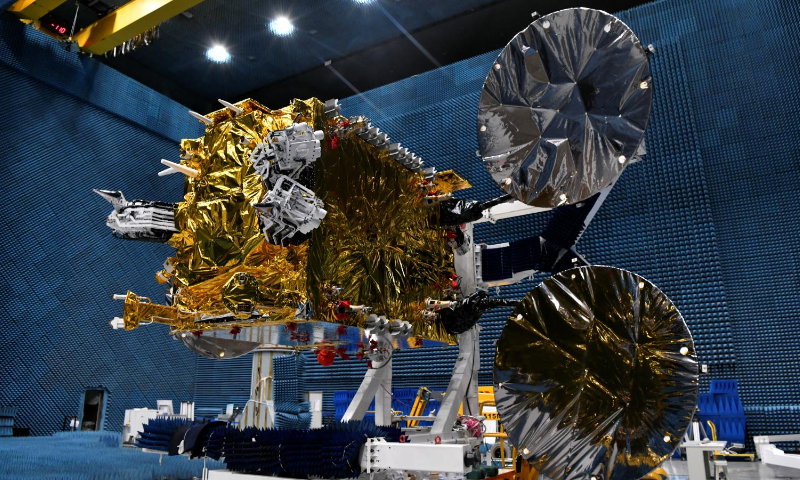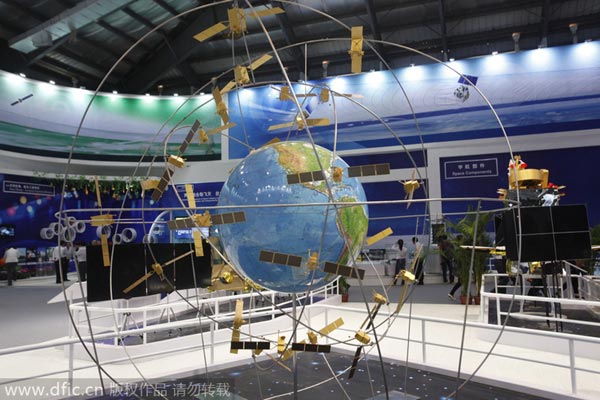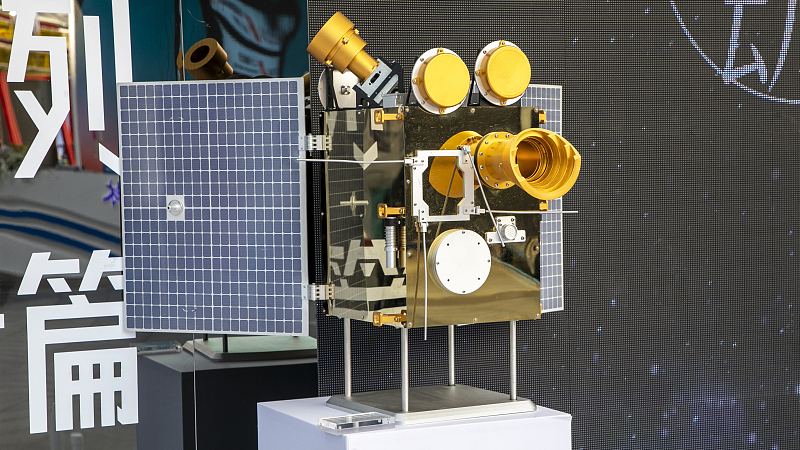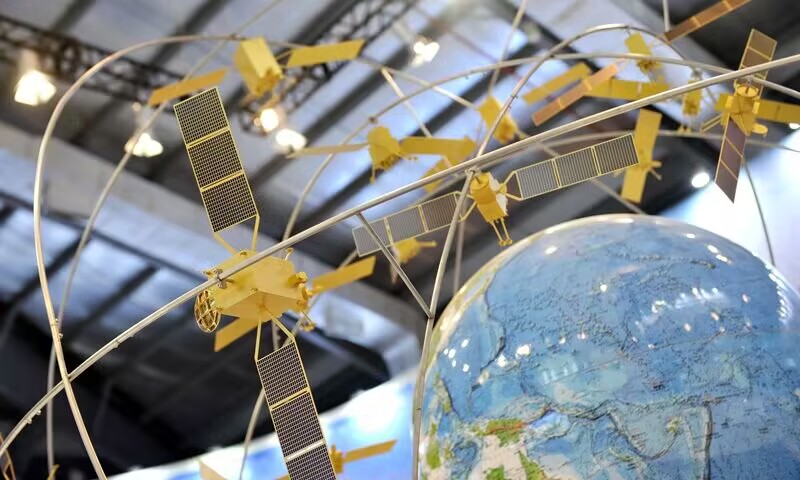China’s BeiDou outpaces GPS to become top navigation service provider
By Global Times Published: Dec 14, 2022 10:10 PM Updated: Dec 14, 2022 10:02 PM
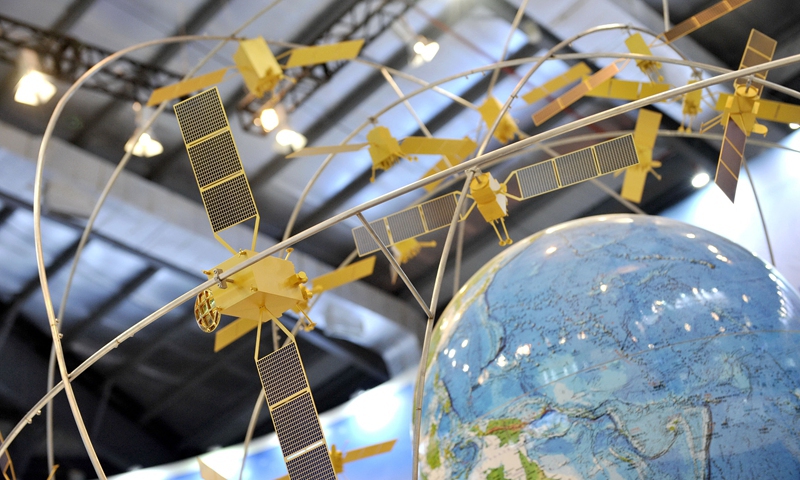
File photo of a model of the Beidou Satellite Navigation System.Photo:Xinhua
China's BeiDou Navigation Satellite System (BDS) has become the top guidance service provider for domestic Gaode Map, according to a statement released by the Beijing Institute of Space Science and Technology Information on Wednesday.
Based on the average number of satellites called by domestic navigation apps for each positioning, BeiDou satellites have been called the most, 30 percent more than the second-ranked GPS, the China Media Group (CMG) reported.
Gaode Map has used BeiDou satellites to make more than 210 billion positioning calls each day. The combination of BDS and map navigation is providing better services to the public, read the statement.
Map apps users can check the number of BeiDou satellites currently offering service in real time during navigation, including each one's code, azimuth angle, height angle, frequency, signal strength and other factors.
Although the news only became public on Wednesday, the BDS has actually long surpassed GPS in serving domestic map apps, Liu Dingding, a Beijing-based veteran market analyst, told the Global Times.
Another domestic map giant, Baidu Maps, announced an official switch to the BeiDou system on September 30, with daily positioning uses exceeding 100 billion for the first time.
BeiDou playing a dominant role in the domestic navigation sector is of great significance. For starters, as a homegrown technology, it is free from external meddling, and it could ensure data and information security. In addition, the positioning quality of BDS has proved in many scenarios to be much better than GPS, Liu said.
A Beijing resident told the Global Times that the BeiDou system is more accurate than GPS. "I use Baidu Maps app to plan a route and navigate whenever I drive. With BeiDou, Baidu Maps now knows whether I'm on the main road or the side road right next to it, which usually cannot be distinguished by GPS," said the person.
Liu noted that the application of BDS in navigation apps is only the tip of the iceberg. The system has been widely used in many industrial and agricultural sectors, from port management and grain production to providing disaster relief.
An intelligent farm in Handan, North China's Hebei Province, has installed BeiDou-supported positioning and navigation devices, automatic steering devices and remote-control devices on autonomous tractors to sow seeds and spray pesticides.
The total output value of China's satellite navigation and location-based service industry exceeded 470 billion yuan ($64 billion) in 2021, with a compound annual growth rate of over 20 percent, said a .
As of the end of 2021, BDS had been installed in more than 7.8 million road transport vehicles nationwide. Approximately 8,000 BDS terminals were in use on the country's railway network, and more than 100,000 agricultural machines were equipped with self-driving systems based on BDS.
BDS has seen accelerated development and use overseas too, Liu noted.
Beidou products, technologies and services have been applied in more than 120 countries and regions, the Xinhua News Agency reported in October.


